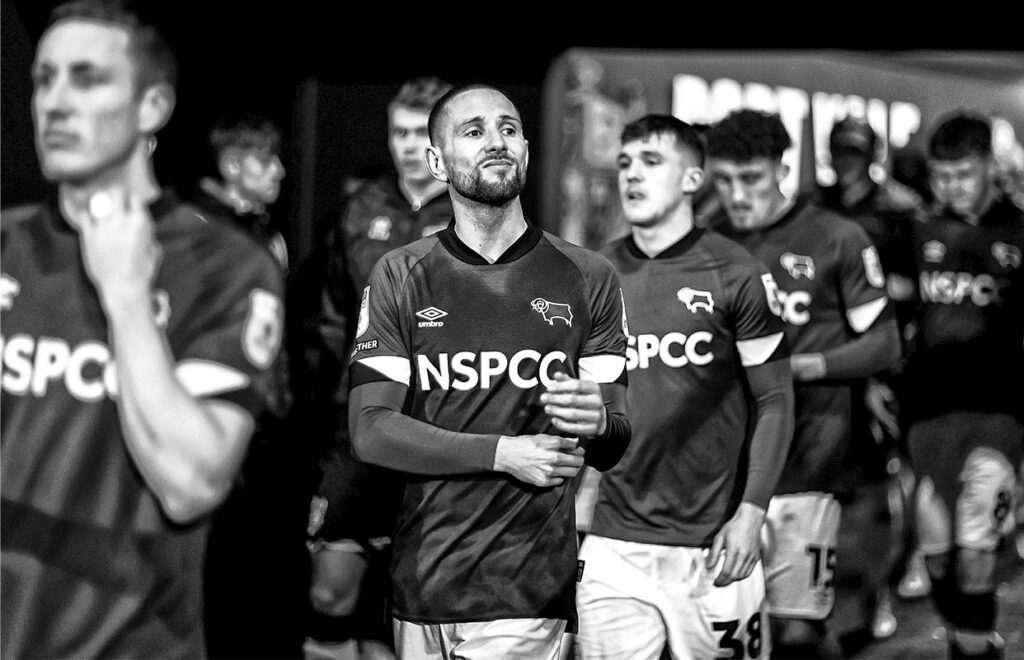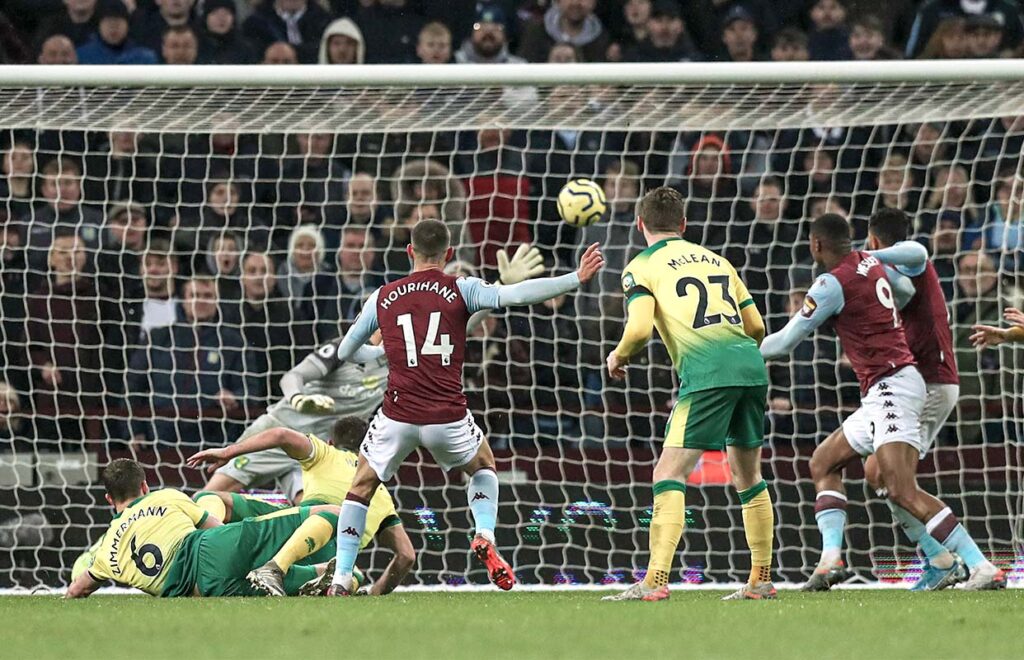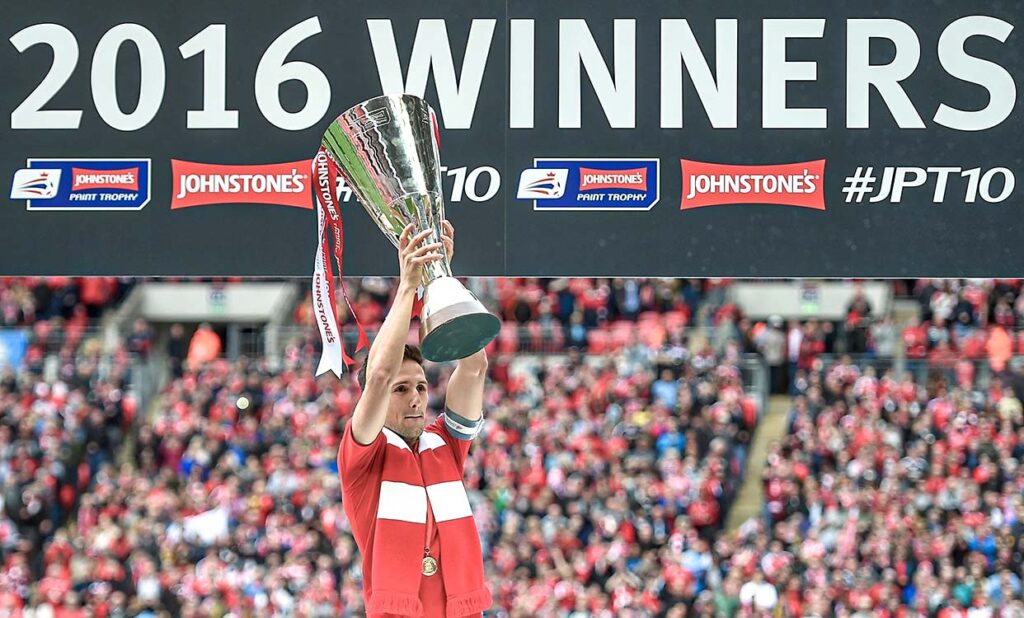Conor Hourihane
Assistant head coach, Barnsley, 2024-2025; Head coach, 2025-
My wife and family are probably the only ones who really know just how much non-stop work I have been doing, preparing for what is now my career in coaching.
I am really proud to have been named Barnsley’s assistant head coach, which is something that did not happen by chance. It has taken a lot of hard work – which most people would not be aware I have been doing – racking up the coaching hours at all sorts of levels and clubs.
Because I am so hungry to become the best coach I can be, I have been doing everything I can to learn and improve. Making the transition from playing to coaching has also been helped by the fact that I am really content with what I achieved as a player. That included playing more than 600 games at all four levels of English football, as well as for my country, Ireland, and winning three promotions.

When I entered the last five years of my playing career, I started to focus more and more on coaching. That meant doing my badges, meeting sporting directors and speaking to previous managers I had worked with.
I was playing for Steve Cooper at Swansea City when we had the Covid lockdown. That was a time when my interest in coaching really accelerated. I took so much from Steve, picking his brains and asking him questions about why he did certain things.
He had a special skill when it came to managing players he had left out of the team. Even if he dropped a player, they would still want him to do well, which wasn’t always the case with a lot of the managers I played for over the years. Steve was that good with people, however, that no matter who he dropped they would support him. That fascinated me.
“I would turn up and find out two lads couldn’t get out of work, and another was running late from work. All of a sudden I was adapting on the spot”
He took a real interest in people, getting to know the person over the player. That meant where they came from, but also the little details about their kids, their wife, schools, jobs, birthdays. Those are the little things from which you get that genuine human connection. If you don't take a real interest and the attempt to make a connection is fake, players will see right through you.
First and foremost, Steve takes an interest in his players’ wellbeing away from the pitch. But he is also all about improving your individual game. When I was one of his players, he challenged me a lot. He set me targets, but also gave me the support to try to achieve them. And he’s been nothing but supportive with me as I embark on my own coaching career.
Coaching and management have long been fascinations of mine. Over the course of my playing career, if I came across a line from a manager that resonated with me, I’d write it down. Then, during lockdown, I had an opportunity to do my UEFA B Licence. It really snowballed from there.

A couple of years ago, I started coaching in the Southern League. A friend of mine, who's an analyst at Aston Villa, was assistant manager at Stourbridge, close to Birmingham. I was doing my A Licence and he said: “Come down for a Thursday evening session.” Stourbridge are part-time, training Tuesday and Thursday evenings, and I was meant to go down for about four sessions in October to finish my A Licence off. I ended up staying for the full season, and absolutely loved it.
It was a great opportunity for me to learn about adaptation. For instance, I might get a brief from the assistant manager to organise a session on possession, crossing and finishing, for 12 players. I'd be organising it on a Wednesday evening, to coach on a Thursday night. Then I would turn up and find out two lads couldn’t get out of work, and another was running late from work. All of a sudden I was adapting on the spot, with 15 minutes to change a session from 12 players to nine.
By 2022, I had signed to play for Derby – and in that first season we just missed out on the League One playoffs. That summer I thought about what I wanted to achieve before I finished playing and became a full-time coach. I had another year left at Derby, under the management of Paul Warne. He was another manager I had really connected with.
“I was putting so much into coaching, that flipping my mentality to playing was something I also found difficult”
Paul made me captain, and I knew what the role entailed, having been fortunate enough to captain a few of my previous clubs. It gave me a new spring in my step that I probably needed. By that point, if I was going through another season of just being a player, I'm not sure I would have done myself justice. I needed a little bit more.
Getting the captaincy gave me a role where I had more to concentrate on, such as leading the dressing room. Liaising with Paul gave me another insight into how the coaches work, and more responsibility. Getting promoted to the Championship with Derby that season, as captain, was the icing on the cake.
Then the opportunity came along to join Barnsley, initially as a player-coach, which felt like a perfect scenario. It came with a relationship I already had with the club – a history and fondness, having captained Barnsley to playoff and EFL Trophy final victories. They also knew the coaching journey I was on, having coached their Under-16s.

So I started the 2024/25 pre-season as a player-coach at Barnsley. The type of guy I am, I want to do my role with the utmost professionalism – I’m a fanatic when it comes to hard work. As such, I found myself speaking with my wife and some people at the club, telling them: “I can’t do both roles at the level I want. I can’t concentrate on playing as much as I need to do myself justice. And I’m not giving enough to the coaching role, which is the pathway I want to get on with. Something has to give.”
I was putting so much into coaching, that flipping my mentality to playing was something I found difficult. Being in every coaches’ meeting, getting changed in the coaches’ changing room, having a desk – the players saw me more as a coach. For me to then go on the pitch to play, was something I found quite difficult. Could the players really give out to me if I gave the ball away? Or if I lost my runner, or didn’t pick my man out from a corner? It was a bit awkward.
With the focus, hunger and success that I wanted to bring to coaching, I wasn’t doing myself justice. That didn’t sit right with me. Around the same time, Barnsley first-team coach Dean Whitehead left for Stoke. I was told they didn’t want to bring another coach in. The club were really impressed with the work I was doing, and they knew where I was at in terms of my hunger to coach. So I was asked to step up and take on more.
“With analysis, the ability to use Sportscode is so important, which is why I learned how to clip games and sessions myself”
And the manager, Darrell Clarke, has been absolutely brilliant. He has chucked me into it, giving me so much responsibility. I’ve been in charge of set-plays, as well as coaching on the grass every single day, and taking individual and unit meetings.
Darrell will tell me: “Right, you’ve got this, this and this on these days.” I’m doing set-plays, so it might be analysing them, or taking a set-play meeting. It might be something simple, like a passing drill, possession, crossing or finishing, or whatever I feel is right. I will put in full preparation and focus to get the utmost done, then debrief afterwards and watch it back. What was good about it? How did I feel about it? What can be better for the next time?
The interesting challenges have been the individuals. Initially, I probably gravitated towards four or five players who gravitated a little bit more towards me than some others did. Then it’s been about learning how to connect with the other players as well. I put in my utmost with those initial individuals – almost from a selfish point of view, because I wanted them to go away and say to others: “Bloody hell, Conor was good.” I wanted that to snowball into others coming to me and asking: “Can I work with you, too?” And that is what has happened.

I might take the Under-21s for a little bit as well. They have a brilliant coach in Tom Harban. If, for example, I feel it would be beneficial for me to do more on the tactical side, I can go to Tom and ask if it’s possible for me to do some tactical work with them? I want to do everything I can to ensure that I can tick every box as a coach.
The same with analysis. Steve Cooper wants all his coaches to be laptop-savvy, and not have to rely on other people. With analysis, the ability to use Sportscode is so important, which is why I learned how to clip games and sessions myself. That way, I can show someone what I want to show them, and not have to rely on others to do it. That wouldn’t sit well with me.
The tactical side is something I am learning all the time, from different coaches and opposition. In the evenings, I might download and watch two or three games, from all different levels. Recently I’ve been watching a lot of Sporting, from Rúben Amorim’s time in charge, after he got the Manchester United job. I wanted to see how he set them up, and what he might be doing differently that I might be able to take something from.
“The formation doesn’t really interest me as much as how you want to press and how you want to build”
Building up from the back is a big talking point at the minute. Do you want to build up in a way that shows you really believe in being a possession-based team? Or do you want to suck in the opposition, maybe to clip it in and go long a little bit more? Do you want to build up in a two, a three, a four or a five?
I am a big believer that there is no right or wrong way to play the game; it is whatever you really believe in. The formation doesn’t really interest me as much as how you want to press and how you want to build. For example, you might be a 4-3-3, but you press with a front four and build with a back three. So it’s about how you want to press and how you want to build, rather than “we’re a back four” or “we’re a back five”.
I’m big on asking: “What are the opposition giving you?” If they have a full-tilt high press, in League One you might play yourself into a bit of trouble if you try to play out. If they sit off you a bit more, then you can build up a little bit more. You have to ask what they are giving you. What is their shape? Where is the space you can exploit? Can you get certain individuals into the space the opposition is giving you?

Football is like a game of chess – a constant moving of players to try and gain an advantage, and try to stop the opposition. I played for a long time, but if you feel like you know it all, you're going to put a ceiling on your development. In this game, you have to keep learning.
I’m massive on speaking to different people to keep learning. In the last year, I have spoken with sporting directors to find out why they appointed particular managers. I asked them: “What does he do every day that really impresses you?” For instance, I went to see Notts County’s sporting director to speak to him about Luke Williams. Luke had a brilliant time there, before he left for Swansea. He has a style I really like, so I wanted to find out what he does so well.
I also speak to people at Aston Villa, and have been to a lot of their games to see how they set up. Unai Emery fascinates me. Going back to Sportscode, he clips and codes and does all his meetings himself, so he shows exactly what he wants to show. Yes, he might get his analyst to gloss it up a little bit, but he sits down and does all his meetings himself. He takes it into his control.
“Standards and timekeeping are hugely important to me, but so is leadership”
One thing I’ve learned from coaching at Barnsley is that your organisation has to be at a top level. That can be about how the day looks – sessions, meeting times, travel, any media you might have to do. Your organisation of all of this, and your timekeeping, has to be spot on so that everything runs smoothly. If it doesn't, players think: “Who’s organised this?” As in, if it looks poor, the players will question you. When I met Chris Davies – now Birmingham’s manager – he was also massive on the importance of top-level organisation.
Standards and timekeeping are hugely important to me, but so is leadership. I like to drive sessions, to bring energy and enthusiasm. And I’m a big driver of individuals, always wanting them to improve. That means not being satisfied and wanting more, all the time.

I’m always about improving the process, though – never outcome-driven. If you are outcome-driven, I think you'll drive yourself mad. What you need is to consistently drive what you believe in, through clear messaging to the players. That is key.
And I am big on emotional control – never get too high or too low. You’ve got to be in the middle ground all the time. Certain things may infuriate you, but you’ve got to try to handle the emotions. If you don’t, you’ll be up and down all the time.
So every day I try to develop, and who I am as a coach will evolve as time goes on. I’m learning, which is brilliant right now. Then, down the line, there is no doubt that my ultimate goal is to be a successful head coach.

Conor Hourihane


